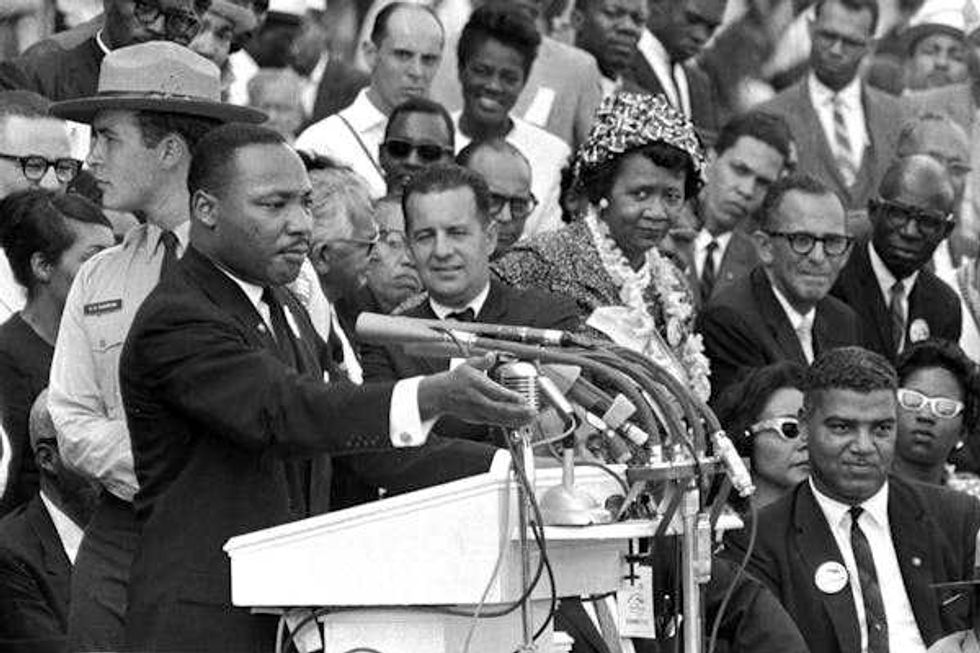UFC fighter Jean Silva wasn’t in the friendliest environment for his MMA fight against his opponent Bryce Mitchell. The Miami, Florida crowd was loudly chanting “U-S-A! U-S-A! U-S-A!” against the Brazilian Silva. Prior to the fight, Mitchell made some pro-Hitler remarks and denied the Holocaust on a podcast. Mitchell even refused to touch gloves with Silva, a sign of respect, prior to the referee starting the contest. This fight was no longer just a sporting contest.
Silva went to work in the first round, taking Mitchell down and nearly ending the fight with a guillotine choke before Mitchell escaped. As the second round began, Mitchell still refused to touch gloves. Silva put him away with a hard strike and won the bout after a chokehold ended the fight. Silva had every right to condemn Mitchell. Instead, he asked the crowd to get him help.
- YouTubeyoutu.be
"I was surprised because I really thought it was part of the game, part of the promotion, but apparently, it's part of him,” Silva told Joe Rogan through a translator in a post-match interview. “I'm sad for him, and you know what? I hope we all hope and pray and help out Bryce Mitchell, because I don't think he's right in the head. It's part of him and there's something wrong with him for him to be like that."
People were concerned about Mitchell earlier in the year when he made vile comments on his ArkanSanity Podcast. Mitchell called Adolf Hitler a “good guy” that he’d go fishing with, went on about anti-Semitic and homophobic conspiracy theories, and said “the Holocaust ain't real." He chalked up all facts to the contrary being “public school indoctrination.”
Upon hearing this, UFC President Dana White publicly lambasted the fighter in an interview with reporters.
"I've heard a lot of dumb and ignorant shit said over the years, but this is probably the worst," White said in a statement to ESPN. "First of all, when you talk about Hitler, he was responsible for the death of 6 million Jews and it was his intent to completely eliminate Jewish people. And that's a guy you would want to go fishing with?"
When asked if Mitchell would be officially reprimanded and disciplined by the UFC for his comments, White cited “freedom of speech” and said that those who hated him could “see him hopefully get his ass whooped on global television."
Mitchell apologized for his comments but many still questioned his sincerity.
But that was all before the fight, before Silva’s win, and before Silva’s comments about Mitchell needing help. Should Mitchell want it, there have been ways for folks to unlearn racist views, and educate themselves on their homophobia and its harms. There are people that could help address any internalized fear, antagonism, or social relationships that contribute to the belief of conspiracy theories. Along with the support, hope, and prayer from true friends, family, fight fans, and even Silva, that’s all available to Mitchell—if he wants it.
If you’re dealing with a friend or a family member that believes in a harmful conspiracy theory, it’s best to approach them with patience, and ask them questions about it that would hopefully point out holes in the logic. Being dismissive or combative will only strengthen their resolve. It will take time, but that appears to be the most effective method a non-professional can do to help their loved one part ways with harmful conspiracies. As Silva already demonstrated, such things cannot be removed through a knockout or a chokehold.
@pet.earthling How to convince conspiracy theorists. 🤦♂️😡 #psychology #covid19 #vaccine #biglie #debunk


















 Creativity and innovation are both likely to become increasingly important for young people entering the workplace, especially as AI continues to grow.
Creativity and innovation are both likely to become increasingly important for young people entering the workplace, especially as AI continues to grow.
 As mayor of Stockton, Calif., Michael Tubbs ran a pioneering program that provided a basic income to a limited number of residents.
As mayor of Stockton, Calif., Michael Tubbs ran a pioneering program that provided a basic income to a limited number of residents. Martin Luther King Jr. believed Americans of different racial backgrounds could coalesce around shared economic interests.
Martin Luther King Jr. believed Americans of different racial backgrounds could coalesce around shared economic interests.
 A anxiety-free man embracing the dayCanva
A anxiety-free man embracing the dayCanva Two friends embrace each other while laughingCanva
Two friends embrace each other while laughingCanva A woman takes a relaxing bubble bathCanva
A woman takes a relaxing bubble bathCanva
 Confident young womanCanva
Confident young womanCanva
 Women and people of color who experience cardiac arrest are less likely to receive CPR.
Women and people of color who experience cardiac arrest are less likely to receive CPR.
 Couple talking in the woods.
Couple talking in the woods. Woman and man have a conversation.
Woman and man have a conversation. A chat on the couch.
A chat on the couch. Two people high-five working out.
Two people high-five working out. Movie scene from Night at the Roxbury.
Movie scene from Night at the Roxbury.  Friends laughing together.
Friends laughing together.
 Tow truck towing a car in its bedCanva
Tow truck towing a car in its bedCanva  Sad woman looks at her phoneCanva
Sad woman looks at her phoneCanva  A group of young people at a house partyCanva
A group of young people at a house partyCanva  Fed-up woman gif
Fed-up woman gif Police show up at a house party
Police show up at a house party 
 A trendy restaurant in the middle of the dayCanva
A trendy restaurant in the middle of the dayCanva A reserved table at a restaurantCanva
A reserved table at a restaurantCanva Gif of Tim Robinson asking "What?' via
Gif of Tim Robinson asking "What?' via